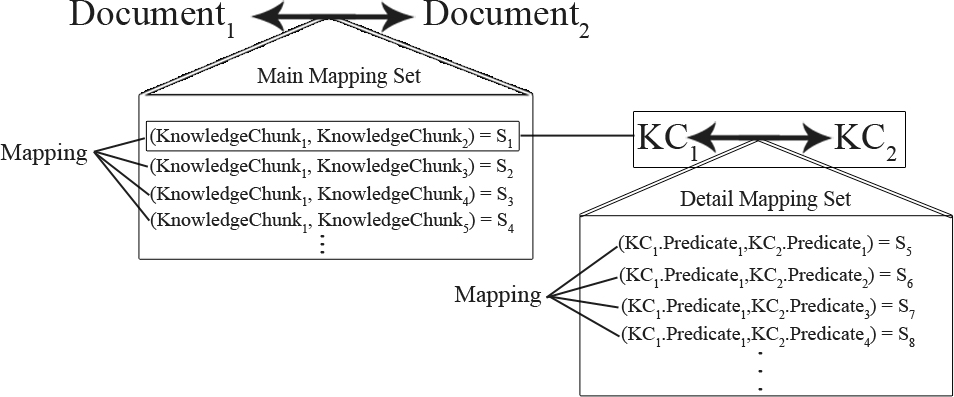
Figure 1
|
||||||||||
| PREV PACKAGE NEXT PACKAGE | FRAMES NO FRAMES | |||||||||
MappingSet structure
connected to the map database.
See:
Description
| Class Summary | |
|---|---|
| Configuration | This class represents a wrapper for the configuration parameters used in a specific HMatch execution. |
| Mapping | Representation of a matching result. |
| MappingSet |
Container for a set of Mappings representing the high level matching between two Documents
or between two KnowledgeChunks. |
| Relation | Representation of a custom comparison relation. |
| User | This class is a wrapper for user's information. |
| Enum Summary | |
|---|---|
| MappingSetType |
Representation of the possible MappingSet categories. |
Contains all necessary classes to represent and manage an HMatch MappingSet structure
connected to the map database. This structure represents three levels of detail (as shown in Figure 1):
KnowledgeChunks.Predicate) of KCs couple (this is
the lowest level of detail).

The main class of this package is the MappingSet class, exposing methods for
Mapping Set management. This class represents the result of a matching operation obtained using the HMatch software. It
contains information about the first detail level and is linked to a set of mappings (class Mapping),
representation of the second level of detail.
The third and last level is represented by the class Mapping again by a self referentiation.
Moreover it contains information about the user that required the execution of HMatch (class User) and
All represented classes are associated with an xml mapping file (contained in the same package) defining database mappings for Hibernate purposes.
All represented classes are associated with an xml mapping file (contained in the same package)
defining database mappings for Hibernate purposes. The subpackage session contains all
necessary classes to manage the database session (take a look at the package description for
more information).
|
||||||||||
| PREV PACKAGE NEXT PACKAGE | FRAMES NO FRAMES | |||||||||